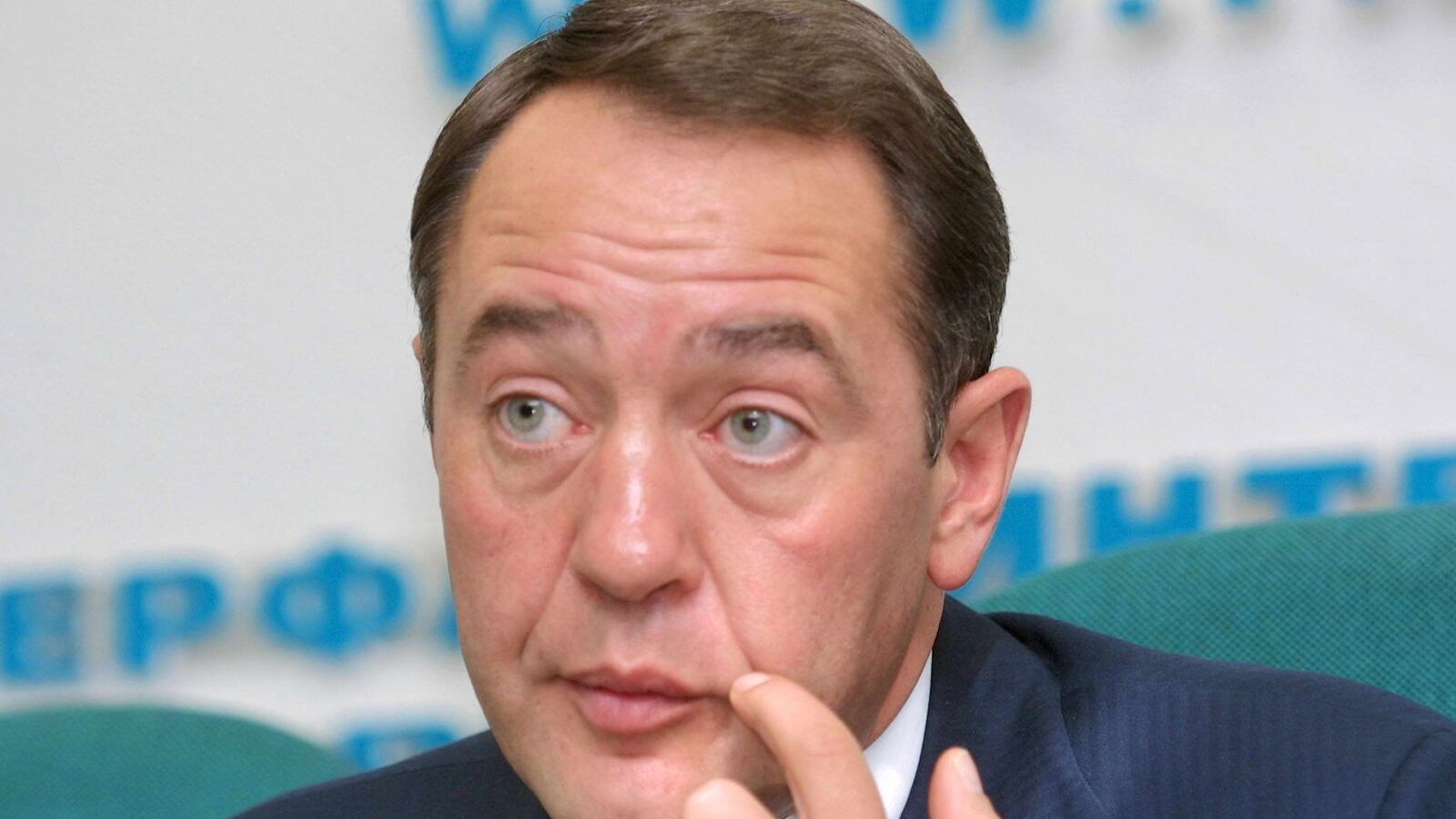An ex-aide to Russian President Vladimir Putin did not die of a heart attack in a Washington, D.C., hotel room last year as was previously reported, but from “blunt force injuries of the head” as well as “the neck, torso, upper extremities, and lower extremities,” a spokesperson with the D.C. medical examiner’s office told The Daily Beast.
The medical examiner reported Mikhail Lesin’s “manner of death” is “undetermined.”
Almost immediately after Lesin’s body was discovered last November, the broadcasting outfit RT (Russia Today), widely seen as a Kremlin mouthpiece, reported that Lesin died of a heart attack, citing an unnamed “family member.”
For months, Washington authorities said the case was still under investigation, though they had performed an autopsy, and declined to disclose the official cause of death—an unusual delay.
But the news that Lesin died of multiple, violent injuries is certain to raise questions about whether the former propaganda chief for the Russian government was murdered. When police found Lesin’s body, the most interesting question wasn’t the cause of his demise, but what he was doing in the United States in the first place.
Lesin, one of the founding fathers of RT and nicknamed “The Bulldozer” for his history of rolling over his opposition, had been under scrutiny by the Federal Bureau of Investigation and the Justice Department for potential money laundering and violation of anti-corruption laws. Lesin was suspected of hiding ill-gotten gains in nearly $30 million worth of luxury real estate in southern California, an astounding set of assets for a man supposedly collecting a civil servant’s salary. He’d also been considered for sanctions that would have prevented him from obtaining a visa to enter the U.S.
Sen. Roger Wicker, a Republican from Mississippi who has spent years looking into corruption and human-rights abuses in Russia, had asked the Justice Department to investigate Lesin. In December 2014, the department confirmed it had referred Lesin’s case to its criminal division and to the FBI.
While officials declined to say whether they formally opened an investigation, several close watchers of Lesin’s case told The Daily Beast they thought it was all but certain that he was being pursued by U.S. law enforcement. And if he wasn’t under active criminal investigation, the FBI had enough evidence to consider opening a case, they said.
The mystery surrounding Lesin’s death had fueled speculation that Lesin was murdered after coming to Washington to cut a deal with the FBI.
The conspiracy theories are arguably well-founded, because it wouldn’t be the first time someone who posed a political threat to Putin wound up dead under unusual circumstances.
Lesin certainly would have had a lot to say about Putin’s inner circle—he worked with, and reportedly owed money to, some of the most powerful men in Russian media and finance. And he would have had a powerful incentive to cooperate with U.S. authorities, namely hanging onto his several mansions in Los Angeles, which potentially could have been seized. At least two of the homes are known to be occupied, respectively, by his daughter and his son, a Hollywood film producer whose star is on the rise.
Lesin was also being squeezed by the U.S. government. Two years ago he’d been nominated by human-rights groups for the so-called Magnitsky list of Russian human-rights violators, which would have allowed Washington to deny him a visa and seize his assets in this country. Lesin was not placed on the public list, which consists mainly of mid-level officials not as influential as the former propaganda chief.
But U.S. officials maintain a classified annex which reportedly includes more senior Russians, including those closer to Putin. It’s not known whether Lesin was on that list, but activists lobbied hard to put him there.
Following a Freedom of Information Act filed by The Daily Beast, the Department of Homeland Security disclosed that Lesin hadn’t obtained a green card or any legal residency status in the U.S.
Upon the news of Lesin’s death, the Kremlin issued a statement on behalf of Putin, noting that he had a “high appreciation for Mikhail Lesin’s massive contribution to the creation of modern Russian mass media.”
But having Lesin as an informant would been a big contribution to U.S. law enforcement and intelligence. And the information that Wicker and his staff, as well as human-rights groups and journalists, dug up on Lesin may have pushed him closer to the FBI’s arms—and ultimately into the path of a killer.






